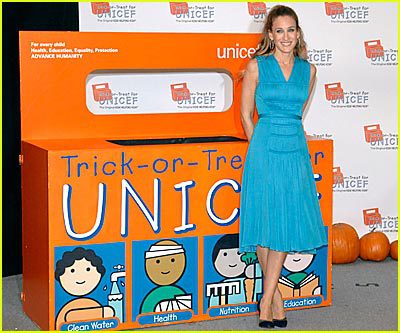
By Kini Schoop, Director of Media Relations for Change.org—
Confession: I don’t read celebrity tabloids or watch Entertainment Tonight. I avoid most celeb-tainment as a rule. This was not always the case for me, as I spent many years working in communications for fundraising organizations that had tremendous support from the entertainment community. (I have recently made the transition to Change.org, a tech startup, but more on that later.) Knowing which Disney star was poised to graduate into the celeb stratosphere was critical to my job. And even more important was keeping tabs on her life in the off chance that her brand could negatively affect the brand of the organization for which I worked.
Most mid to large sized organizations have entire teams dedicated to cultivating and managing relationships with celebrity supporters. Those that do it well are without a doubt Charity Water, Save the Children, and UNICEF which invented the entire celebrity ambassador model which many nonprofits try to emulate. The scale with which UNICEF engages celebrities is truly magnificent – and get this, they do not pay celebrities to work as ambassadors. It is a volunteer position. Globally, the organization has managed relationships with dozens of celebrities. They call on the ambassadors to advocate and fundraise. Both these activities take many forms. They could be a congressional hearing, a field visit aimed at bringing attention to a country affected by a disaster, could be participating in a direct tv ad, and often times participating in high level donor events like gala fundraisers.
The latter of these is what the vast majority of celeb-tainment consumers are familiar with. Pictures from these events often fill the pages of tabloid weeklies and society columns. There is no doubt in my mind that the power of celebrity is immense, especially when it comes to getting high level donors who have likely donated considerable financial resources, and expertise to various committees and board functions to part with an extra $50K to $100K for tables, and bid on the evening’s auction offerings. At that price, it is expected that your donor’s table will be graced with a celebrity. And while an organization may not pay for celebrities to represent them, there are hidden costs to producing a celebrity at an event – hair and makeup, transportation, and accommodations are just a few. Which is all very understandable given that organizations are cashing-in on the celebrity’s persona. You need them to sparkle and dazzle your donors.
So what does all this mean if you are not on the scale of a behemoth nonprofit, and your donors are not underwriting your gala, do you decide to forgo ever engaging celebrity supporters? My answer is this, just because your organization is smaller and your budgets lack Red Cross’s largesse, you should not discount celebrity advocacy. I have witnessed organizations of various sizes engage celebrity supporters in an innovative and dynamic manner that led to powerful results.
There are many ways to benefit from celebrity without shelling out thousands for hair and make-up. Here are a few examples from my experience with Change.org:
- Oceana, an international organization focused solely on oceans, recently engaged actor Ted Danson in a campaign on Change.org to ask Shell Oil to cease oil drilling in the Arctic. This campaign was a coordinated effort between Oceana, Mr. Danson (supporting a cause he passionately believes in) and the Change.org team. The campaign has reached more than 100,000 supporters, and recruited valuable organic supporters who opted into Oceana’s email list.
- Chef and food education activist Jamie Oliver isadvocating for a movement to change the way we eat, and bring comprehensive food education to global classrooms. He brought his Food Revolution Day campaign to Change.org and currently has more than 1.5 million supporters who have signed on. Celebrities includingMatthew McConaughey,Ryan Reynolds,Kylie Minogue,Usain Bolt,Alyssa Milano, andMario Batali and more have tweeted their support for Jamie Oliver’s petition. The Change.org team worked closely with Jamie’s team to craft a strategy of coordinating with the G20, to consider food education as a critical component of basic education.
- Not only are organizations pairing up with celebrities to lead campaigns, but they are also leveraging the fan base of celebrity supporters and their social media presence to help campaigns gain momentum. For instance GLAAD and GMHC launched a petition to pressure the FDA to screen all prospective blood donors based on risk, regardless of their sexual orientation or gender identity. The campaign was launched with a cheeky video starring everyone’s favorite Masterpiece Mystery! host, actor Alan Cumming:http://celibacychallenge.com/.
These ways to benefit from celebrity involve finding out who your cause advocates are and engaging them in creative and time-efficient ways. Do some social media research, follow celebrities who are interested in your cause, interact with their content, and if that relationship builds, ask them to retweet your content to their followers. The cost of this engagement is minimal, but the return has the potential to be huge.
When working with a petition on a platform like Change.org, the ability to reach high-profile celebs with causes that interest them is even greater. So stop wondering if that latest photo of your celebrity supporter taken at your gala and placed in Us Weekly will lead to a new donor. Instead, look for creative, low-cost ways to make a celebrity VIP feel more engaged than they have ever been on a red carpet.